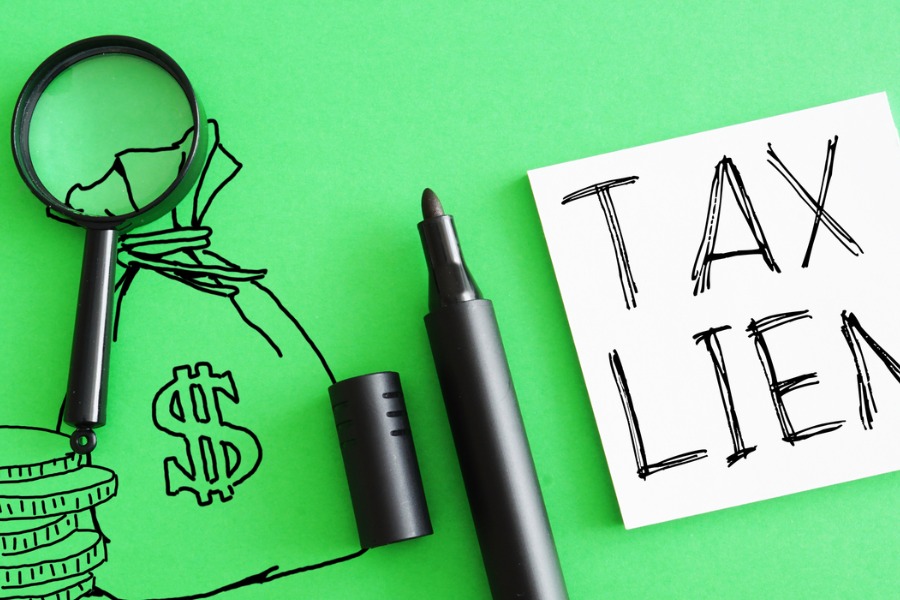All Categories
Featured
Table of Contents

There is a 3 year redemption duration for most residential or commercial properties marketed at the tax lien sale and during that time, the home still belongs to the evaluated proprietor. Extremely few property tax obligation liens actually go to deed.
The rate of interest on tax obligations acquired at the tax obligation lien sale is nine percentage points over the discount price paid to the Reserve bank on September 1st. The rate on your certification will certainly continue to be the same for as lengthy as you hold that certificate. The rate of return for certificates offered in 2024 will be fourteen percent.

The certificates will be kept in the treasurer's office for safekeeping unless or else instructed. If the tax obligations for taking place years come to be delinquent, you will be notified around July and given the opportunity to endorse the tax obligations to the certificates that you hold. You will certainly obtain the very same rates of interest on succeeding tax obligations as on the original certificate.
The redemption period is 3 years from the date of the original tax obligation sale. You will get a 1099 type revealing the amount of redemption rate of interest paid to you, and a duplicate will likewise be sent out to the IRS.
Buying tax obligation liens and actions has the potential to be quite profitable. It is also feasible to invest in tax liens and deeds with less capital than may be required for other investments such as rental buildings. Because of this, this is among the much more prominent financial investment options for holders of Self-Directed IRA LLC and Solo 401(k) programs.
Tax Ease Lien Investments
There are 2 major classes, tax liens and tax obligation actions. A tax lien is provided instantly once they home owner has failed to pay their tax obligations.

Such liens are after that marketed to the general public. An investor acquisitions the lien, therefore giving the district with the essential tax obligation revenue, and afterwards has the right to the residential or commercial property. If the homeowner pays their tax obligations, the investor normally gets rate of interest which can be in the variety of 12-18%.
Tax liens and deeds offer the chance for generous return on investment, possibly with reduced amounts of resources. Tax obligation lien investing is concentrated on the collection of passion and penalties (where offered) for the tax obligation financial obligation.
The process for spending differs by state and by region. The majority of liens and acts are sold at public auction, with some auctions happening in-person at a region courthouse, and some taking location online. You will normally need to register ahead of time for such public auctions and might be needed to position a deposit to get involved.
Tax Lien Certificates Investing
In some territories, unsold liens or deeds may be available available "over-the-counter" from the area clerk's office or website after a public auction has been completed. Before getting involved in an auction, you will wish to carry out research to identify those residential properties you may want and make certain there are no issues such as other liens that may require to be cleared up or issues with the property itself that might produce issues if you were to take over possession.

This might need the issuance of a cashier's check or cable from your strategy account. You will after that need to suffer any kind of redemption period as allowed by regulation. This period is implied to give the residential property proprietor a chance to resolve their financial obligation with the exhausting authority. With a lien, redemption means that your individual retirement account or 401(k) will certainly obtain a payday, with passion and any kind of suitable charges being paid.
Tax obligation lien and action investing is an area where checkbook control is a must. You require to be able to provide funds straight on short notification, both for a deposit which has to be signed up in the strategy entity name, and if you are the winning prospective buyer.
If you make a down payment and are not effective in bidding at auction, the deposit can simply be gone back to the strategy account without hassle. The several days refining delay that features functioning straight using a self-directed IRA custodian simply does not operate in this room. When buying tax liens and acts, you must ensure that all tasks are performed under the umbrella of your plan.
All costs related to tax lien investing have to originate from the strategy account straight, as all income created need to be deposited to the strategy account. tax lien investing pros and cons. We are usually asked if the plan can spend for the account owner to go to a tax lien training course, and advise versus that. Even if your investing tasks will be 100% through your plan and not involve any type of personal investing in tax obligation liens, the IRS might consider this self-dealing
How To Do Tax Lien Investing
This would certainly also hold true of obtaining a residential or commercial property by means of a tax deed and afterwards holding that building as a service. If your approach will certainly include acquiring homes merely to reverse and market those homes with or without rehab that could be deemed a dealership task. If performed often, this would expose the IRA or Solo 401(k) to UBIT.
As with any type of financial investment, there is risk related to buying tax obligation liens and acts. Financiers must have the financial experience to gauge and recognize the threats, do the needed persistance, and correctly carry out such financial investments in compliance internal revenue service guidelines. Protect Advisors, LLC is not a financial investment consultant or carrier, and does not advise any kind of certain investment.

The information over is educational in nature, and is not planned to be, neither should it be construed as offering tax obligation, legal or investment recommendations.
Tax Liens And Deeds Investing
Lien troubled building by regulation to secure settlement of taxes Pima Region, Arizona overdue real estate tax list for auction by the Area Treasurer A tax obligation lien is a lien which is enforced upon a residential or commercial property by regulation in order to protect the payment of taxes. A tax lien may be imposed for the objective of accumulating overdue taxes which are owed on real estate or personal effects, or it might be enforced as a result of a failing to pay income tax obligations or it may be enforced as an outcome of a failing to pay various other taxes.
Internal Revenue Code area 6321 gives: Sec. 6321. LIEN FOR TAXES. If any kind of person reliant pay any tax obligation forgets or rejects to pay the same after need, the quantity (consisting of any type of rate of interest, additional amount, enhancement to tax, or assessable fine, along with any type of prices that might accumulate in addition thereto) will be a lien for the United States upon all residential or commercial property and civil liberties to property, whether actual or individual, belonging to such person.
Tax Lien Invest

Department of the Treasury). Typically, the "person reliant pay any tax obligation" explained in section 6321 should pay the tax within ten days of the created notification and need. If the taxpayer fails to pay the tax within the ten-day period, the tax lien arises immediately (i.e., by operation of law), and works retroactively to (i.e., occurs at) the date of the evaluation, also though the ten-day duration always expires after the assessment date.
A government tax lien emerging by law as defined above stands against the taxpayer without any further action by the government. The basic policy is that where two or more lenders have contending liens versus the exact same residential property, the lender whose lien was perfected at the earlier time takes priority over the financial institution whose lien was refined at a later time (there are exemptions to this regulation).
Latest Posts
Tax Lien Investing Online
Foreclosure Overages List
Real Estate Tax Lien Investments For Tax-advantaged Returns